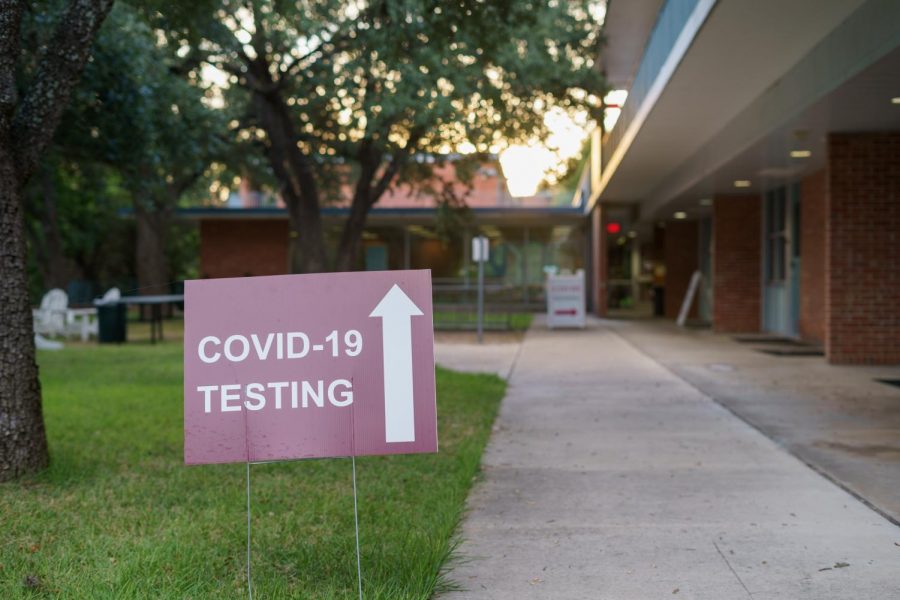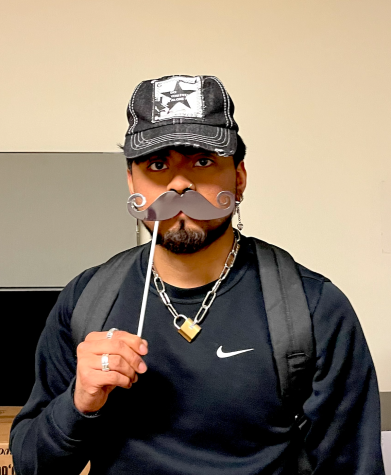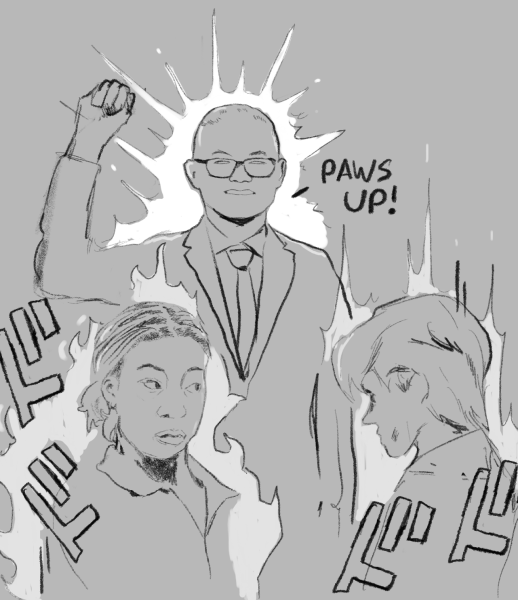ProtecTU policies updated, COVID testing misconceptions addressed
Gathering capacities increased, masks still required for all despite vaccination status
Trinity students, staff and faculty received an email with renewed ProtecTU protocols on Monday, Sept. 26. As of Monday, capacity of indoor meetings and gatherings has increased from 50 to 100 individuals, and capacity of outdoor meetings and gatherings has increased from 100 to 250 individuals. Guests are allowed on campus given they provide proof of vaccination and receive a negative COVID test submitted to Trinity’s COVID health team and the Nerve Center.
“San Antonio area hospitals continue to be under stress, and children under the age of 12 do not have access to vaccinations,” wrote Tess Coody-Anders, vice president of student communications and marketing. “While we believe this surge has peaked, we do not believe we will return to a pre-Delta case rate until the end of November.”
Other requirements such as wearing a well-fitted mask while indoors and mandatory weekly testing for unvaccinated individuals still stand. Events that bring visitors to campus such as Fall Family Weekend and Alumni Weekend will continue as planned with precautionary measures.
Despite weekly emails with updated COVID numbers, testing policies and other pandemic-related guidelines, Coody-Anders said there are still misconceptions among the Trinity community about how testing works.
Common misconceptions about COVID testing
One misconception is that only unvaccinated students are pulled for surveillance testing. In fact, there are some groups on campus flagged for being at high risk for exposure such as music programs, athletics and residential assistants. Leaders of high-risk organizations or programs can opt into random surveillance testing.
“If you are vaccinated and you’ve been asked to come for testing, it’s because you’re a music student [for example], and you’re in the music department, and you’ve got an upcoming performance,” Coody-Anders said. “The music department wants to practice in person, so, to be safe, they’ve asked that the members of the orchestra test.”
If you are a fully vaccinated individual who is called to Murchison Lounge for a random COVID test, you can email or call the Nerve Center for more information. They will be able to tell you which of your affiliations has opted into random surveillance testing.
According to Coody-Anders, another frequently misunderstood protocol is contact tracing. If a student has been exposed to COVID and they are fully vaccinated, CDC guidelines state that they do not need to quarantine but must be tested within three to five days of the exposure. The testing center might tell a student to come for a test later than when the student wants, not because the center is booked or closed, but because the window between three to five days after exposure is prime for catching the virus.
“Let’s say that I learned today that yesterday I was around someone who tested positive for COVID,” Coody-Anders said. “If I rush out and get a test today, it might be a false positive because it’s too early for that test to pick up my infection, and so the CDC guidance says you should wait three to five days, so that’s why students may hear, ‘Hey, you’re a close contact. It’s Saturday, [so] we’d like you to come in on Tuesday to have a test.’”
In between the exposure and COVID test, students are permitted to go to class. If they then test positive after having attended class, no classmates are considered close contacts unless the positive individual was not wearing a mask or participated in close activities such as lab work. Exposures that occur off-campus in more social settings tend to bring in more than the typical two or three close contacts.
“Where we’re seeing transmission happen is when people are not wearing masks, and they’re eating together, dining together, having prolonged social activities with prolonged contact where they might be yelling, screaming, singing, exercising together for longer periods of time indoors, and almost all of the transmission is happening off-campus in the community,” Coody-Anders said.
Who makes up Trinity’s COVID response team?
When the pandemic started, Trinity acted swiftly to assemble a team that could facilitate mass testing and isolation. This began with a partnership with Florence Medical Group (FMG) who, according to Michelle Stewart, FMG Chief Operations Officer, jumped right in with testing.
FMG is based in San Antonio and exists to partner with organizations who need healthcare assistance. Overseen by Marcy Youngdahl, director of Integrated Counseling & Health Services, FMG’s role at Trinity expanded over time to help with students who needed support in isolation whether medical, academic or otherwise.
“We really, really took our role seriously and we still do, in that everybody on the campus deserves a great level of care while still being able to achieve their goals from a campus life perspective,” Stewart said. “We partner with the academic success team to make sure that the student who may be in quarantine or isolation can still get their classwork done.”
Now, FMG is responsible for on-demand testing for those exposed to COVID or who just want to get tested. In the beginning of 2021, Stewart said FMG and Trinity began working with Community Labs as an outside vendor that runs scheduled surveillance testing.
“What they do is they bring the supplies, the tests and test takers to campus, and our Trinity team manages the logistics, so scheduling the check in process,” Coody-Anders said. “We receive the results, and then we take over the management of the contact tracing and treating in collaboration with Florence Medical Group.”
How to address concerns with COVID testing facilitation
When junior Olivia Cox went into the COVID testing center at the beginning of the semester for baseline testing, she said she experienced inappropriate comments made while checking in. According to Cox, the person checking students in via QR code asked the individual in front of her if there was any chance she could be pregnant, followed by remarks about possible impregnation by aliens. Cox was asked the same questions, which she said she had never been asked before or since that test.
In response to this instance and other concerns about inappropriate conduct, Coody-Anders emphasized that students can always reach out to the Nerve Center by email or phone to report unsatisfactory experiences while being tested. Stewart said that when FMG began its partnership with Trinity, they made sure each organization’s values aligned to make the partnership a positive interaction for all involved.
“Some of our values are care, doing the right thing, seeing something, saying something,” Stewart said. “Part of our mission is to make sure that everyone gets access to care, and so that aligns a lot with some of Trinity’s mission and values by intentional inclusion.”
Trinity oversees Community Labs testers as they are a “pure vendor” according to Coody-Anders, while FMG has a Director of Clinical Services who makes visits onsite to evaluate team members, ensuring that their presence on Trinity’s campus remains in alignment with the university’s values.
“If we ever find somebody who’s not [aligned], we make every attempt to correct that and to make sure that they understand what we stand for and why we’re working with this client and partnering with a great organization like Trinity University or any other organization that we work with,” Stewart said.
Cox said her experience in August came up in her sorority group chat where friends discussed times they had felt uncomfortable while in the testing center.
“There should be a system in place for when things go wrong like this, and I know that this is all very rushed, and they set it up really quick, so I can empathize with that, but I didn’t know you could report it to the Nerve Center,” Cox said. “I was just like, ‘Okay, this guy is making me uncomfortable and there’s nothing I can do about it.’”
Both Community Labs and FMG scribes have assisted with checking students in for testing, according to Coody-Anders, so concerns about uncomfortable comments have been shared with FMG, with Trinity reiterating the need for professionalism and respect within the testing center.
“While it may be that the person involved thought they were using humor to make others feel more comfortable, our current nursing staff fully appreciates that the effect of such behavior is quite the opposite,” Coody-Anders wrote in an email. “We will ask Community Labs to hold their testing agents (who change frequently as they rotate from location to location across San Antonio) to the same standards. All understand that such behavior undermines the integrity of a vital and necessary program to keep our campus safe.”
Coody-Anders said that since the COVID health teams have worked so hard over the past 18 months to make campus a safe place, she does not want one person to ruin these overall efforts. If you would like to report something related to your COVID testing or isolation experience on campus, you can email [email protected].
“Fundamental to good contact tracing and management of COVID on campus is students feeling safe, comfortable and welcome in their interactions with our COVID clinic,” Coody-Anders said. “And if there’s anything that’s getting in the way of that, we need to address that immediately, not just because it’s the right thing to do for those individual students, but because it is the right thing to do for the integrity of our processes.”
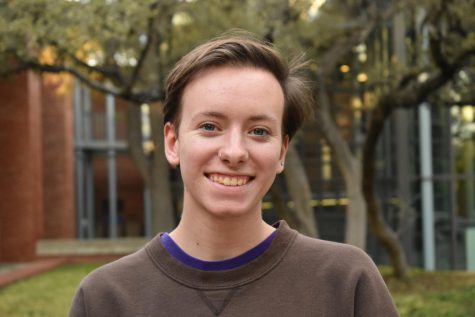
I am a senior French and Earth Systems Science double major from St. Louis, MO. When I'm not wearing my EIC hat, I am also a Chapel | Spiritual Life Fellow,...
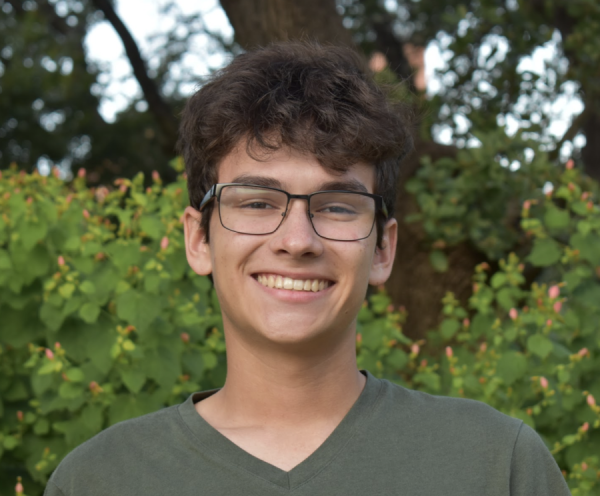
My name is Sam (he/him) and I'm a photographer here with the Trinitonian. I'm a senior Communications and German double major from Austin, Texas, and...

